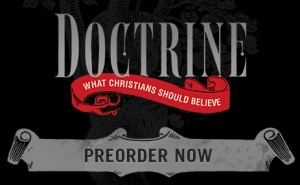 Last night we had a great turn out for all three classes at City Seminary (thanks Justin!), where our aim is to make disciples who think theologically and live redemptively. My course is called Theology in Practice: Applying Systematic Theology to Everyday Life (you can check out the rest here) . We’re working through the Nicene Creed biblically, theologically, and practically. Our first night was The Trinity in a Fragmented World.
Last night we had a great turn out for all three classes at City Seminary (thanks Justin!), where our aim is to make disciples who think theologically and live redemptively. My course is called Theology in Practice: Applying Systematic Theology to Everyday Life (you can check out the rest here) . We’re working through the Nicene Creed biblically, theologically, and practically. Our first night was The Trinity in a Fragmented World.
The course is a combination of lecture, community interaction, and personal study. We moved through the following topics:
- Immanent Trinity: The One & the Many
- Economic Trinity: Unity and Diversity
- God as Persons-in-Community
- Trinity as Practice: Love, Community, & Culture
It was a stimulating night. I thought one question that sparked some significant discussion was worth re-posting. It revolved around the use of analogies to explain the Trinity. For instance, some say the three-oneness of the Trinity is like the shared substance but different forms of water-gas-ice. Or another is that of the Father, Son and Brother relationships representing the person and roles of the Godhead. So here is the two-part question:
Do all natural/human analogies of the Trinity fail?
What if we found an analogy that adequately explained the Trinity? What would that say about God?

